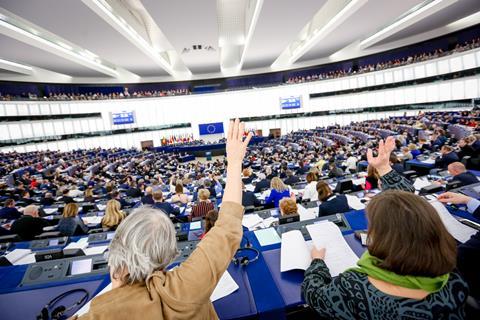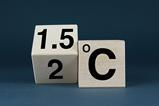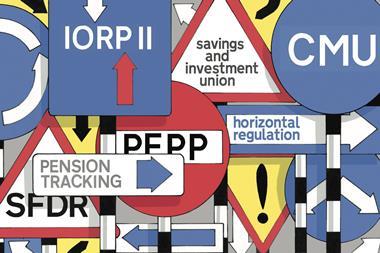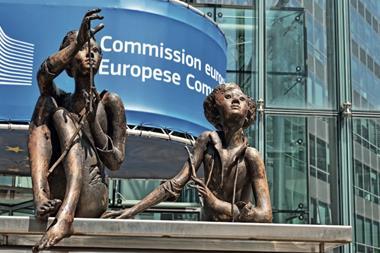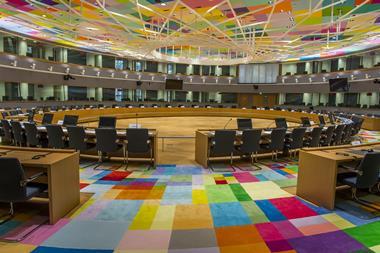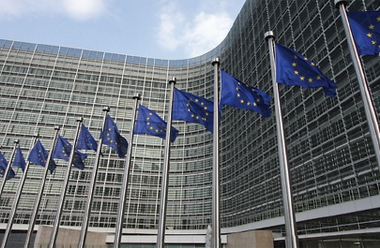Investors will pay close attention to messaging from the European People’s Party (EPP) after centrist groups held their ground in the European elections, according to the Institutional Investors Group on Climate Change (IIGCC).
Despite gains for right-wing nationalist populist parties, the share of votes for centrist political groups only saw a small decrease.
“The European elections have not very significantly shifted the equilibrium between parties,” the public affairs team at BNP Paribas Asset Management told IPE in a statement.
“The coalition between pro-European parties remains and dialogues have already started regarding key initiatives and the next Commission.”
The previous coalition led by centre-right EPP, with centre-left Socialists & Democrats (S&D) and liberal Renew Europe, should retain control after winning 56% of seats versus 59% previously, said Azad Zangana, senior European economist and strategist at Schroders.
Minimising green backlash
The IIGCC has told its members that EPP, the party of European Commission president Ursula von der Leyen, is now in the best position to steer the political agenda, including on climate, and that the party’s messaging will be key as a result.
“While all centrist groups are committed to fighting climate change, some factions in the EPP favour a more ‘pragmatic’ route, reflecting a divergence on the agreed approach and pace,” it said in a note to investors.
It said it was unlikely there would be a significant rollback of agreed environmental legislation in an EPP, S&D and Renew coalition, but that there would probably be more polarised debates about new EU climate policies, including setting the bloc’s 2040 emissions reduction target next year.
“Centrist groups will need to find a way to advance the green transition while minimising backlash,” the IIGCC policy specialists said. “Focusing on the role that climate action can play in job creation, attracting investment and ensuring energy security will be key.”
Zangana said the energy transition agenda had been damaged by the notion that Europe could press ahead and decarbonise its economy but without regard to the impact on the competitiveness of its firms.
“The EU’s Carbon Border Adjustment Mechanism (CBAM), a system of tariffs on imported raw materials that do not adhere to carbon emissions limits and costs, will likely gain further support,” he said.
“If Le Pen of France and Meloni of Italy were to find a way to work together, they could have meaningful impact on policy”
David Zahn, head of European fixed income at Franklin Templeton
Climate think tank E3G said the next European Parliament is expected to maintain a majority of pro-EU, pro-green transition politicians. For Jurei Yada, programme lead for EU sustainable finance, this means there is “a good signal for businesses and investors to keep moving towards sustainability”.
“Broadly, the challenge ahead for the EU is to deliver and finance stable climate action while also demonstrating its social benefits and fairness,” she said.
“We will have to see what alliances emerge in the new Parliament, but thanks to its strong results the EPP has options – including closer cooperation with the left, which could provide stability for this agenda.”
Green Deal ‘not dead’
David Zahn, Franklin Templeton’s head of European fixed income, considers talk of a setback for green parties is overstated.
“There may be some modification of environmental policy, making the work of investors more difficult, but I think there will also be continuity,” he said.
Russia’s war on Ukraine had highlighted the risk of energy dependency and diversifying energy sources with wind, solar and geothermal power produced within the EU’s borders was widely viewed as important, Zahn said.
“Even the far right has to tread carefully on this issue,” he said. “Recently, Norway had an interruption in the natural gas it supplies to Europe, and it had real impact. Given this impetus, I believe the greening of the economy will continue and the green bond market will continue to grow.”
Rebecca Christie, a senior fellow at Bruegel, said the Green Deal isn’t dead “but it may be treading water longer than strong supporters would like”.
“Fractious EU parliamentarians and nationalist lawmakers may drag their heels on deadlines like when to require electric cars, and the new Commission also may be preoccupied with budget and foreign policy debates,” she said.
“All that said, voters’ choice to gather around the political center means there is some real potential to make progress on technical files.”
France
An important factor in European politics is the outcome of the snap legislative elections in France, called by president Emmanuel Macron in the face of a disappointing performance of his coalition in the European elections.
“Although the EU parliamentary election is concluded, I think we have just heard the starter’s pistol in the competition for the leadership of France and for negotiations over EU policy,” said Franklin Templeton’s Zahn.
“I think the media may be underestimating Le Pen’s chances of victory. Historically, Le Pen of France and Meloni of Italy have not cooperated well, but if they were to find a way to work together, they could have meaningful impact on policy. We will have to watch how strategic they decide to be.”
The latest digital edition of IPE’s magazine is now available








